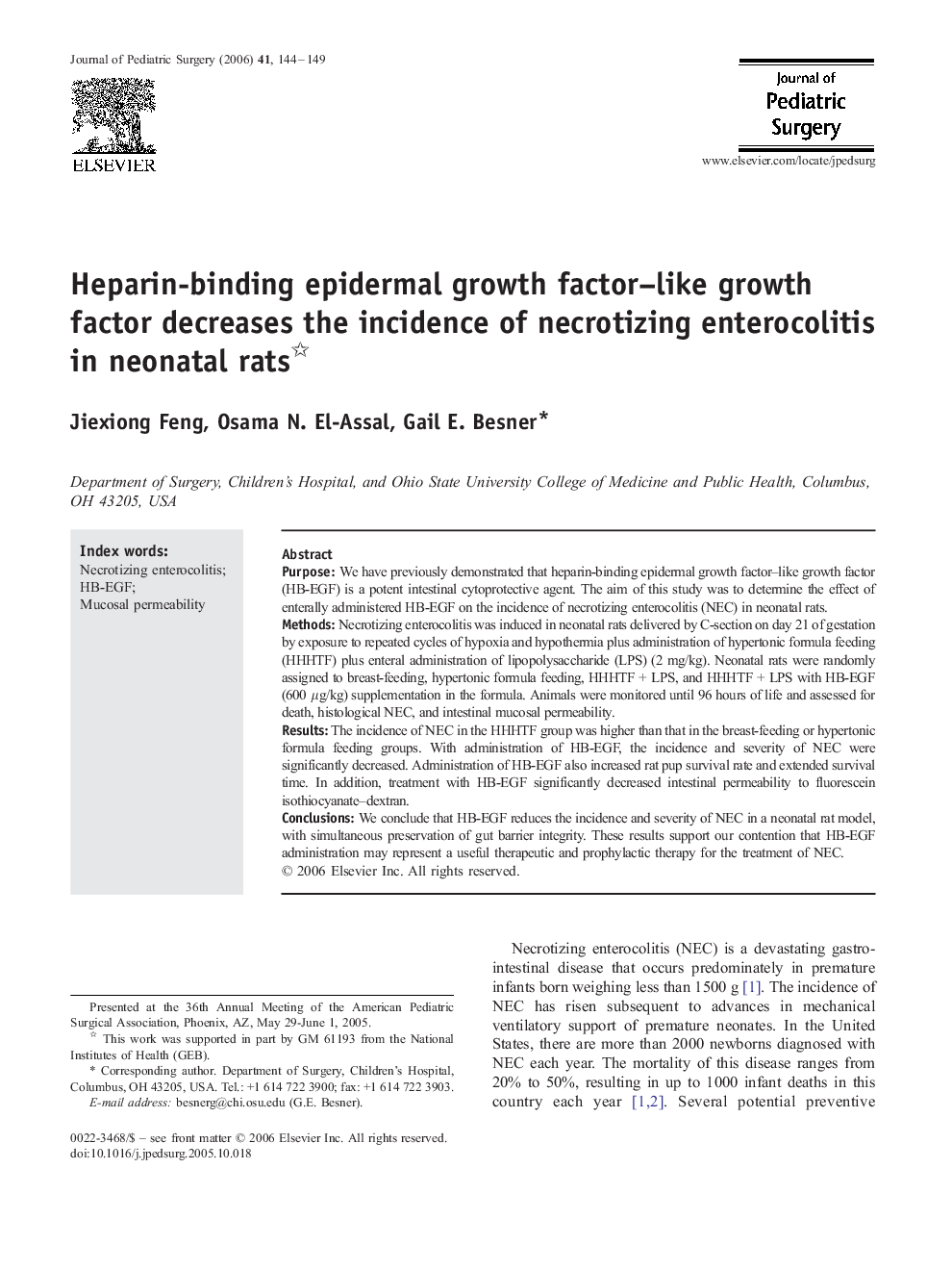| Article ID | Journal | Published Year | Pages | File Type |
|---|---|---|---|---|
| 4160791 | Journal of Pediatric Surgery | 2006 | 6 Pages |
PurposeWe have previously demonstrated that heparin-binding epidermal growth factor–like growth factor (HB-EGF) is a potent intestinal cytoprotective agent. The aim of this study was to determine the effect of enterally administered HB-EGF on the incidence of necrotizing enterocolitis (NEC) in neonatal rats.MethodsNecrotizing enterocolitis was induced in neonatal rats delivered by C-section on day 21 of gestation by exposure to repeated cycles of hypoxia and hypothermia plus administration of hypertonic formula feeding (HHHTF) plus enteral administration of lipopolysaccharide (LPS) (2 mg/kg). Neonatal rats were randomly assigned to breast-feeding, hypertonic formula feeding, HHHTF + LPS, and HHHTF + LPS with HB-EGF (600 μg/kg) supplementation in the formula. Animals were monitored until 96 hours of life and assessed for death, histological NEC, and intestinal mucosal permeability.ResultsThe incidence of NEC in the HHHTF group was higher than that in the breast-feeding or hypertonic formula feeding groups. With administration of HB-EGF, the incidence and severity of NEC were significantly decreased. Administration of HB-EGF also increased rat pup survival rate and extended survival time. In addition, treatment with HB-EGF significantly decreased intestinal permeability to fluorescein isothiocyanate–dextran.ConclusionsWe conclude that HB-EGF reduces the incidence and severity of NEC in a neonatal rat model, with simultaneous preservation of gut barrier integrity. These results support our contention that HB-EGF administration may represent a useful therapeutic and prophylactic therapy for the treatment of NEC.
